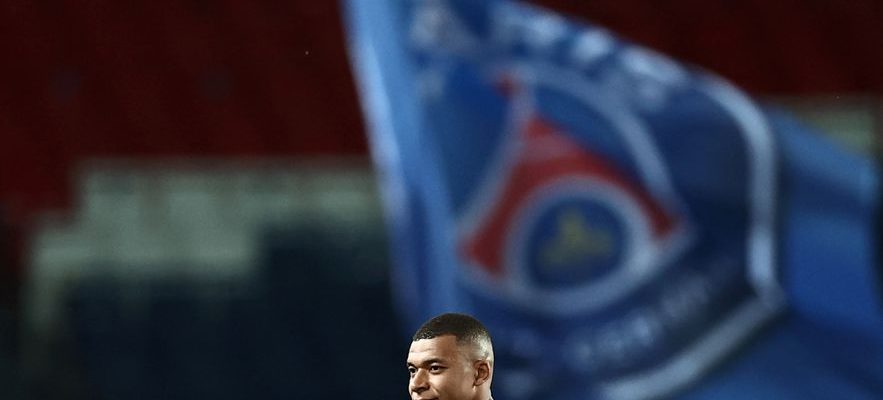In Europe, PSG is fighting on all fronts. Sports, financial, and now legal. The capital club welcomes AC Milan this Tuesday evening, in a match that it would be well advised to win if it wants to qualify for the final phase of the Champions League. This trophy, the most prestigious, has eluded him for twelve years and the arrival at the helm of Qatar Sports Investments (QSI), a subsidiary of the Qatari sovereign fund Qatar Investment Authority (QIA).
Despite the avalanche of stars recruited over time – Zlatan Ibrahimović, Neymar, Lionel Messi, Kylian Mbappé… – and the hundreds of millions of euros poured into attracting and paying these stars, nothing has happened: the team Parisian has never managed to impose itself in the competition bringing together the elite of European clubs. To the great dismay of its president, Nasser Al-Khelaïfi, who is starting to find the time long, and the bill steep: in the 2021-2022 season alone, Paris Saint-Germain recorded a record deficit of 367 million euros, according to the report established by the National Directorate of Management Control (DNCG), the commission of the Professional Football League responsible for monitoring the accounts of French clubs.
As plump as they may be, these losses have not dampened Qatar’s determination to continue to perfuse the club. Sitting on a colossal oil and gas income, the wealthy emirate has made football in general, and PSG in particular, one of the main levers of its “soft power”. Whatever it takes. In any case so far… Because a – big – stone has just lodged itself in the shoe of the Emir Al Thani.
The primary target of the text? Chinese cars…
At issue: a European regulation, adopted at the end of 2022 and implemented since July 12, relating to foreign subsidies distorting the internal market – in English “Foreign Subsidies Regulation” or “FSR”. This text authorizes the European Commission to open an investigation into a company present on European soil if it is suspected of benefiting from direct or indirect financial aid paid by a state outside the EU. A windfall likely to distort competition by giving it an unfair advantage compared to its European rivals. This regulation, initially passed to fill the inadequacies of the World Trade Organization (WTO), was mainly intended to target Chinese groups, receiving public aid from Beijing. In fact, two investigations – against Chinese electric vehicle and turbine manufacturers – have already been launched by the Commission’s sleuths.
Ironically, this regulation could also upset the balance of European football business. Engaged for a long time in a standoff with PSG, which it accuses of unfair competition – the stratospheric transfers of Neymar or Messi between Barcelona and Paris were experienced on the other side of the Pyrenees as a form of plunder -, the The Spanish Football League immediately stepped into the breach.
PSG star striker Kylian Mbappé after a match against Ajaccio, May 13, 2023 at the Parc des Princes
© / afp.com/Anne-Christine POUJOULAT
Potentially devastating consequences
As soon as the FSR regulation came into force, Javier Tebas, its president, put his lawyers to work on the file. And exactly a month later, in the torpor of summer, La Liga announced in a press release that it had contacted the European Commission, on the grounds that the Parisian club had received “foreign subsidies from the State of Qatar allowing it to establish a competitive advantage likely to generate significant distortions in several national markets of the European Union.” A Spanish initiative confirmed to L’Express by the Brussels executive.
The consequences for Paris Saint-Germain are potentially devastating. “If the Commission opens a formal investigation and finds that foreign subsidies have distorted the market, PSG may be asked to return the funds received. Please note that the regulation applies to foreign subsidies received up to five years before the date of its entry into force”, specifies Katarina Pijetlovic, sports law lawyer and secretary general of the European Club Union launched on April 24. Dubbed by the thunderous Javier Tebas, this new organization, which defends “small” clubs, is supposed to counterbalance the weight of the ECA – European club association -, the circle of “big”, chaired… by Nasser Al-Khelaïfi. “The Commission could also require that PSG carry out divestments or refrain from making certain investments,” continues Katarina Pijetlovic.
The “clown” Tebas
In the QSI entourage, we are sticking for the moment to the laconic statements of Nicola Pesaresi, a Commission official, who called, last September, for “caution” on the question of these subsidies in football . “Javier Tebas criticizes the money coming from the States even though he has just signed a deal with the Saudi Arabian tourism office, PSG complains. He complains about excessive spending to build a team. But who invented this concept fifteen years ago? Barcelona and Real Madrid! Tebas is a clown who sues PSG every week to hide his own mistakes.”
La Liga is not the only body to have seized the FSR regulation. In Belgium, the small club Royal Excelsior Virton relied on the same arguments to denounce to the European Commission the millions of euros recently injected into the accounts by City Football Group, owned by the emirate of Abu Dhabi. from its local rival, SK Lommel. Manchester City, which is in this same galaxy, or Newcastle FC, bought two years ago by the sovereign wealth fund of Saudi Arabia, are exposed to the same grievances.
It is an understatement to say that the follow-up given to these complaints will be scrutinized with the greatest attention by those responsible for football. In the event of a positive outcome, they would simply signify the dynamiting of the “state clubs”, of which the Gulf countries have made a specialty, and the reconfiguration of a good part of European football.
.
